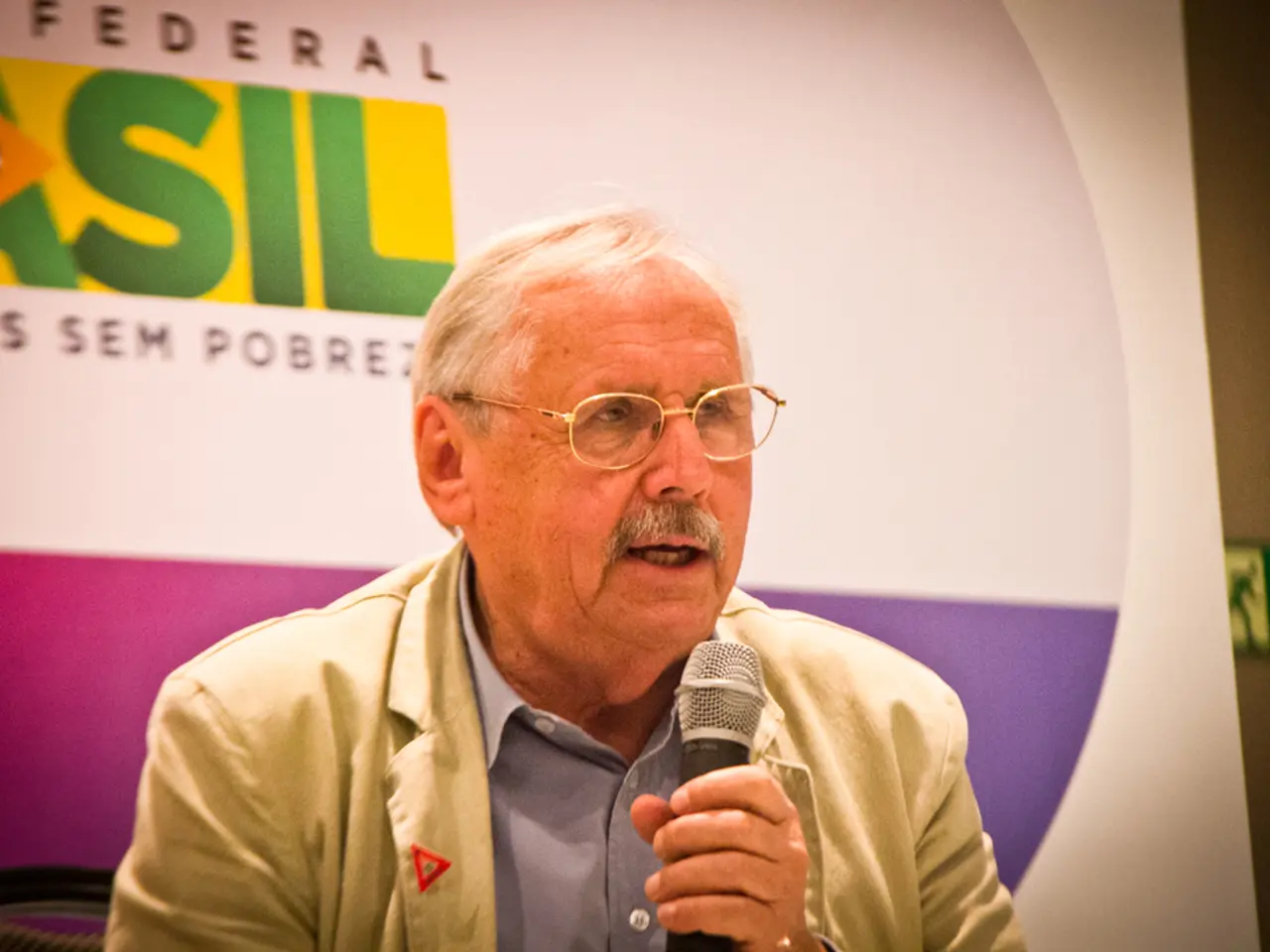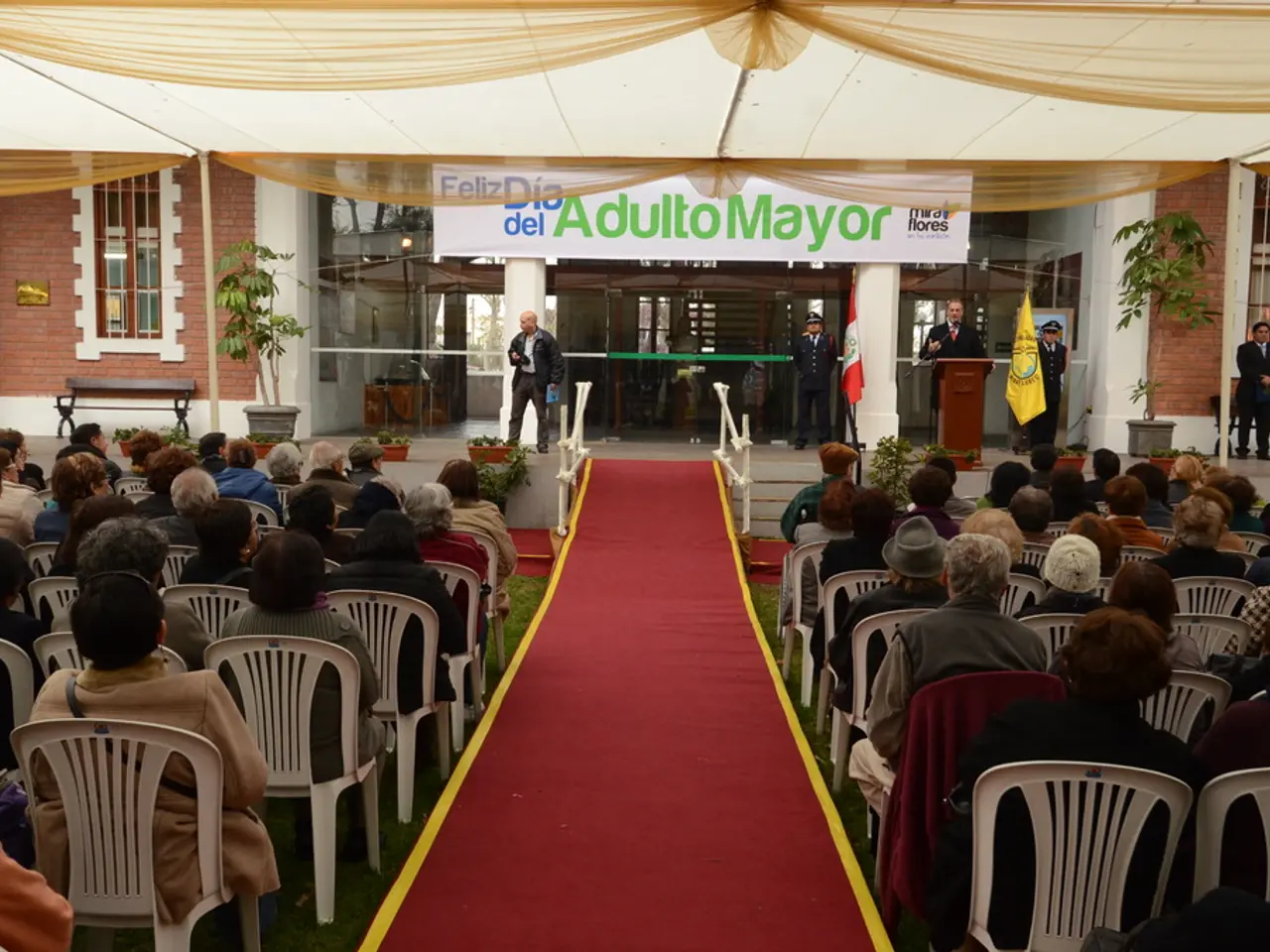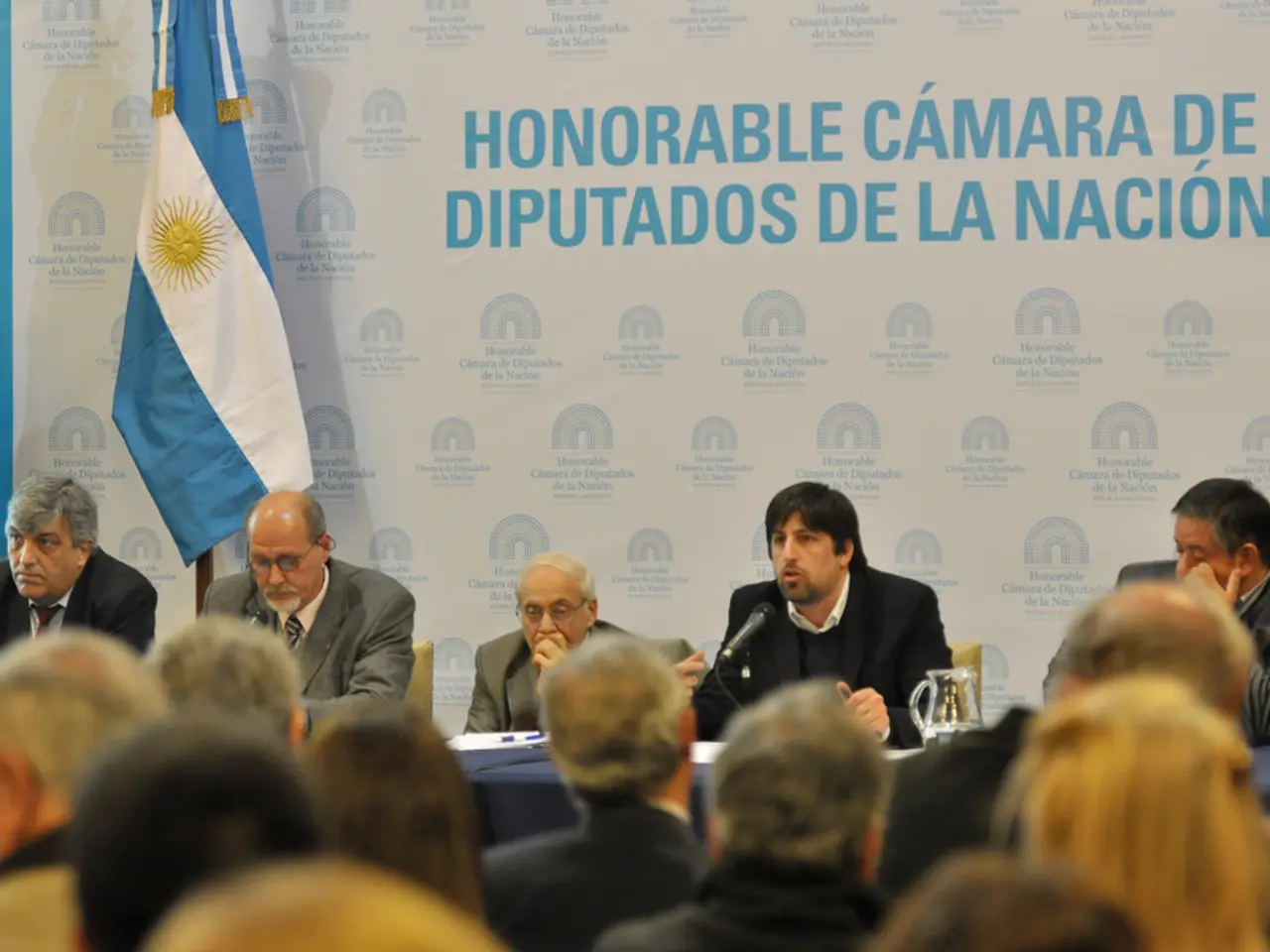Revised strategy for resolving the two-nation predicament
The ongoing conflict between Israel and Gaza has sparked intense and complex international pressure, involving multiple actors with differing positions.
Germany, led by Foreign Minister Johann Wadephul, is planning to travel to the region to try to persuade Israel to change its stance diplomatically. Wadephul intends to discuss the humanitarian catastrophe in Gaza with Israeli and UN representatives, as well as meeting with representatives of the Palestinian Authority in Ramallah.
The United Nations General Assembly has passed a resolution calling for an immediate and sustained humanitarian truce and cessation of hostilities, reflecting widespread international concern over the conflict's humanitarian impact. The resolution also demands that Hamas end its rule in Gaza and hand over its weapons to the Palestinian Authority under international supervision.
Israeli leaders, such as Finance Minister Bezalel Smotrich, remain unmoved and have suggested expanding illegal settlements in the West Bank and taking over Gaza by either driving out or killing all Palestinians. This potential full reoccupation of the Gaza Strip would be a major escalation and likely face fierce international opposition, including from within Israel itself.
Netanyahu and his government seek the complete defeat of Hamas and securing the release of hostages, with considerations involving U.S. support being crucial. However, many Western countries, including the United States and European nations, have condemned Hamas' attacks and expressed Israel's right to self-defense but simultaneously called for ceasefires and humanitarian relief.
On the side of the Palestinians, many Muslim-majority countries and the "Axis of Resistance" blame the Israeli occupation as the root cause of the violence and support the Palestinians politically. Some countries have taken diplomatic actions such as severing or downgrading relations with Israel due to its conduct during the war.
Regarding Gaza’s future governance and ending Hamas' rule, an international plan involving an International Stabilization Force composed of Arab states has gained some traction among key Arab countries and European partners. This plan proposes a technocratic governing mechanism for Gaza overseen internationally and eventually integrated with a reformed Palestinian Authority, focusing on non-displacement of Palestinians and humanitarian relief. However, this plan faces challenges, especially concerning how to disarm Hamas and the willingness of the parties involved to participate.
The British government has shifted to a tougher stance against Israel's war crimes in Gaza, threatening to recognize Palestine as an independent state if Israel does not end the Gaza war by September. The statement was signed by Egypt, Qatar, and Saudi Arabia, among others. Aid organizations continue to criticize the joint "air bridge" of Jordan and Germany, demanding land-based aid deliveries.
The international response balances support for Israel’s security concerns with calls for humanitarian access and political solutions in Gaza. The debate over Israel’s potential full reoccupation is ongoing and highly contentious, with no clear consensus internationally. Efforts to establish a governance alternative to Hamas in Gaza are under discussion but remain fragile and complex.
- Amidst international pressure due to war-and-conflicts in Israel and Gaza, Germany, led by Minister Wadephul, plans to discuss humanitarian issues, politics, and diplomatic stances with various actors, including Israeli and UN representatives, and Palestinian Authority officials.
- In the face of the ongoing conflict, the United Nations General Assembly called for a humanitarian truce, expressing concerns over the politically charged situation, while also demanding Hamas to end its rule and disarm under international supervision.




